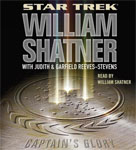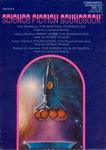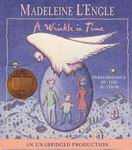
ed.’s note: New reviewer Stephen Uitti and his review come to us via his blog, predelusional.
 Ida
Ida
By Tim Callahan; Read by Tim Callahan
32 MP3 Files – Approx. 12 Hours [UNABRIDGED]
Publisher: Podiobooks.com
Published: 2006
Themes: / Science Fiction / Hard SF / Space Travel / Asteroid Mining / Economics / Politics / Sex /
Each of the 32 mp3 audio files of this podcast novel has an introduction and epilogue. There are few introductions and epilogues that I’ll actually listen to. But Timothy’s is particularly annoying. He apologizes for his Philadelphia accent before you even get to hear him read. Guys – if you’re presenting a show, let the audience decide if they like it themselves. Don’t make us pity you for being too stupid to get someone else to read your book. Don’t go the other way either. Don’t hype it up. It is OK to promote some other work.
After the first chapter, the introductions also have a summary of what has gone on before. Maybe some people couldn’t remember what happened last month in the original serial. But now the entire book is available. I don’t have patience for the repetition so I skipped most of the introductions and epilogues. The guts of the each new chapter starts after a bit of music, and my iPod Shuffle was able to get me there via fast forward most of the time. Skipping epilogues is easy enough, since Callahan says that’s the end. Just skip to the next track. Since I skipped all that material, there was much less than twelve hours of material. There’s a bonus. After the novel is finished, Callahan offers in a short story entitled Balance. Balance takes place well after the events in Ida. Really, Ida is a prequel. It’s the backing story to Balance. Like his introduction to Ida, Timothy apologizes for his short story. Jeez. For the record, I liked Balance more. As a short story it has much faster pacing. Remember that reading a book to yourself is something like three times faster than hearing it aloud. So, short stories with very fast pacing work better in audio format. And yet, Balance is long enough to give you the idea that several events take place. The events in the story are believable. And no laws of physics are broken in the building of the plot.
That reminds me. The worst parts of Ida have to do with laws of physics. They aren’t broken like faster than light travel. It’s more like having a character survive an acceleration of ten or twenty thousand miles per hour in a few seconds time. That’s a minimum of 50 gravities. Ouch. A little more explanation could salvage the suspension of disbelief, and therefore the plot. This means a lot to me. But maybe you don’t care. Ida is real hard Science Fiction. It’d be nice to have someone check the science and do some math here and here. It wouldn’t take much. Really.
The work had sufficient interest to make it worthwhile. Rich characters, character growth, character interaction, believable responses and plot development. You can identify with the characters. Pick favorites and root for them. Suspense. And the end of the story is not simply telegraphed. There are plenty of surprises in the middle. And the flaws – mostly physics gaffs – are not nearly as bad as those in typical Hollywood movies. And they’re all fixable.
Is there sex? Yes. Is there violence? Yes. Is there swearing? Yes. Is the swearing pointless? Yes. This story would have been consumable by my ten year old, but because of pointless swearing, it isn’t. Will you like it? It depends on how much you like the good parts, and how tolerant you are to the flaws. It has lots of both.



 Ringworld
Ringworld
